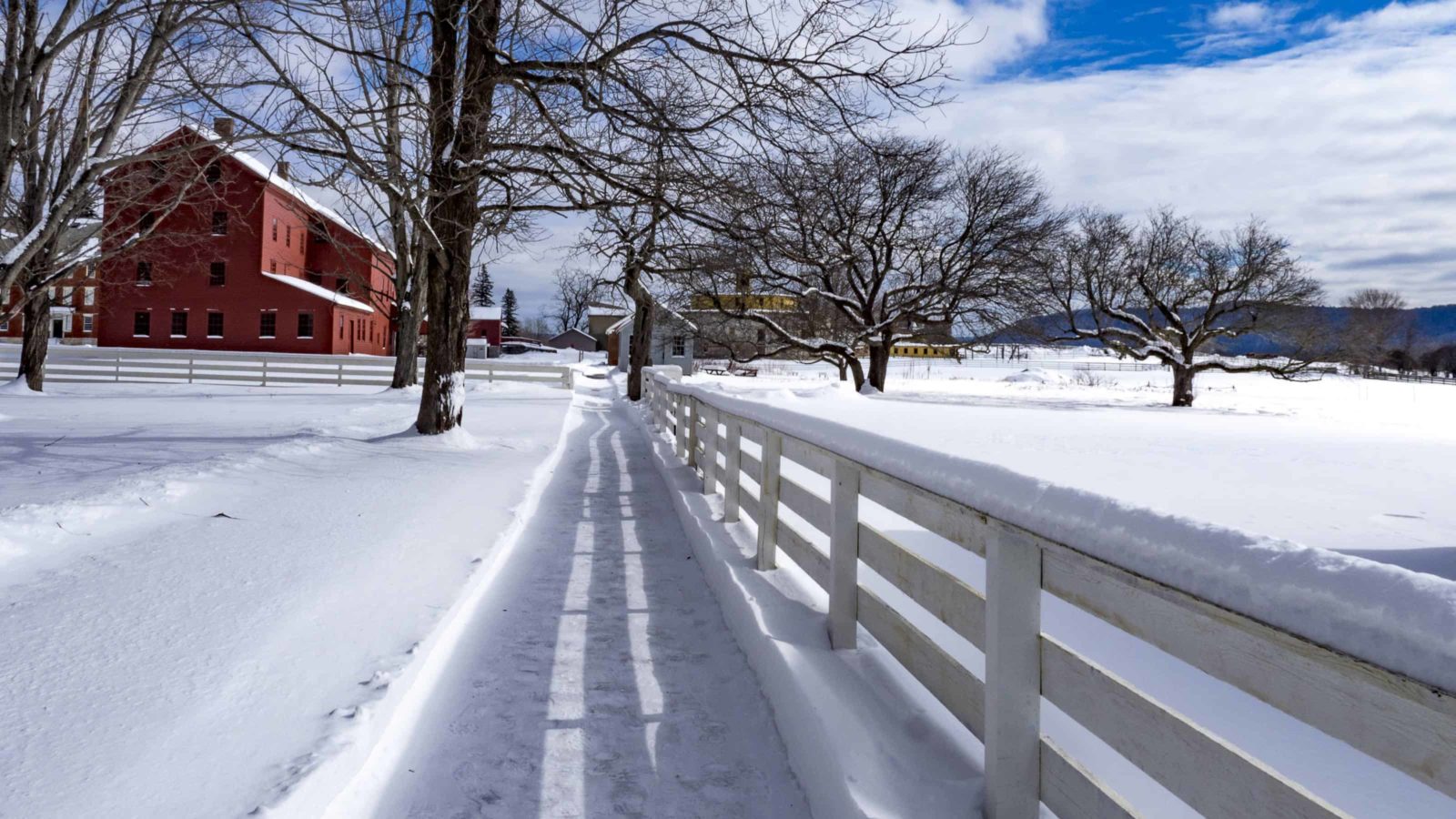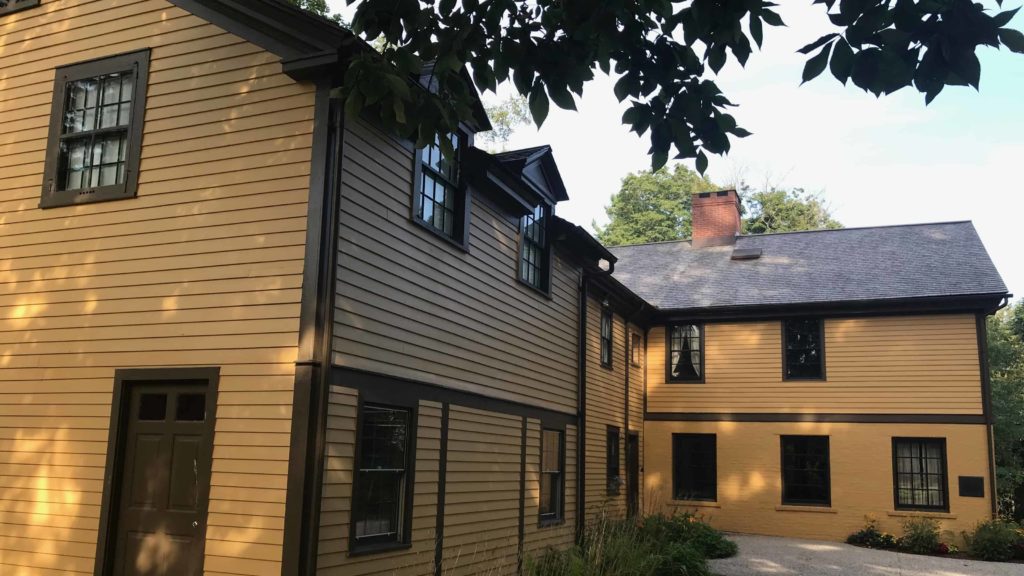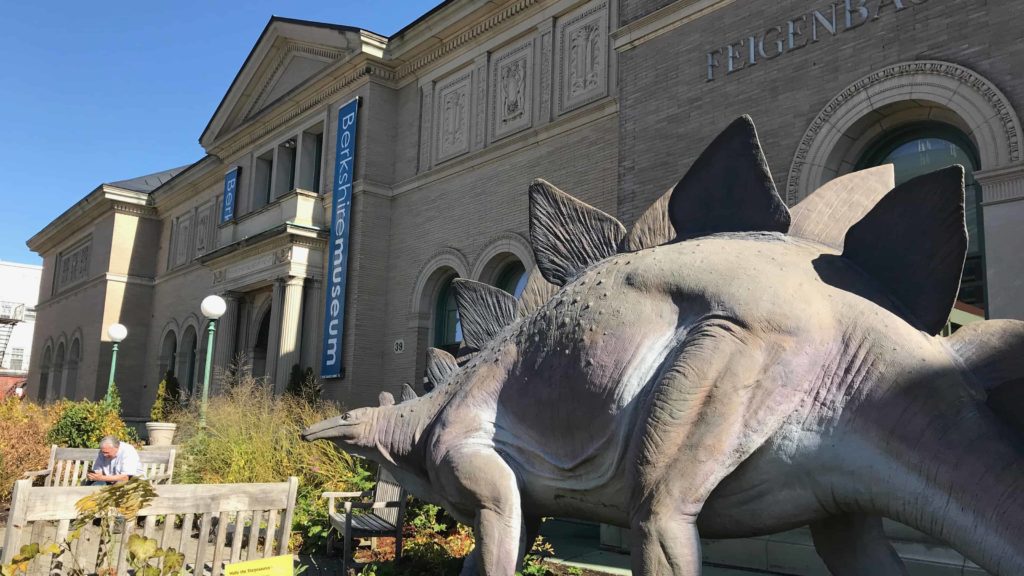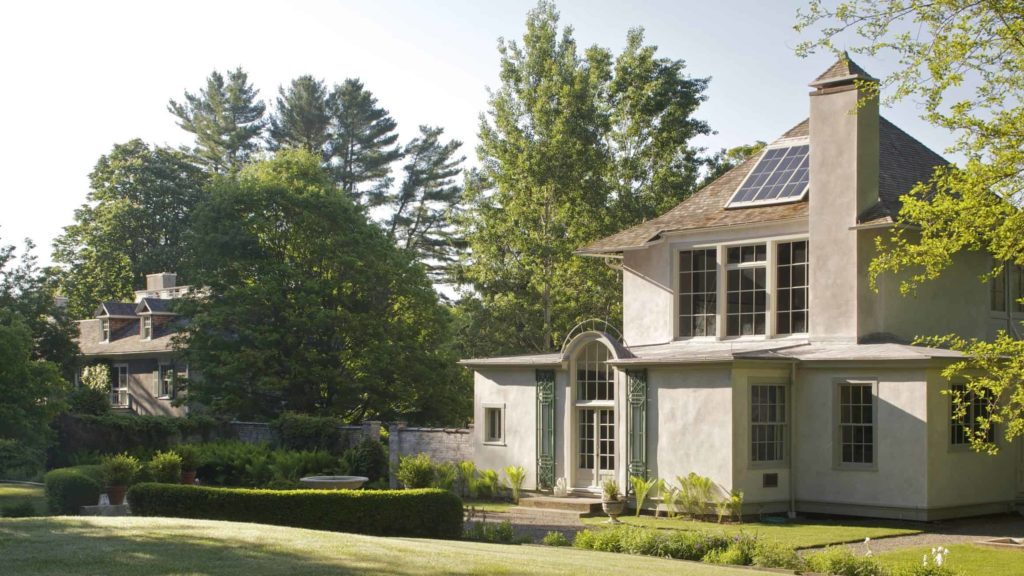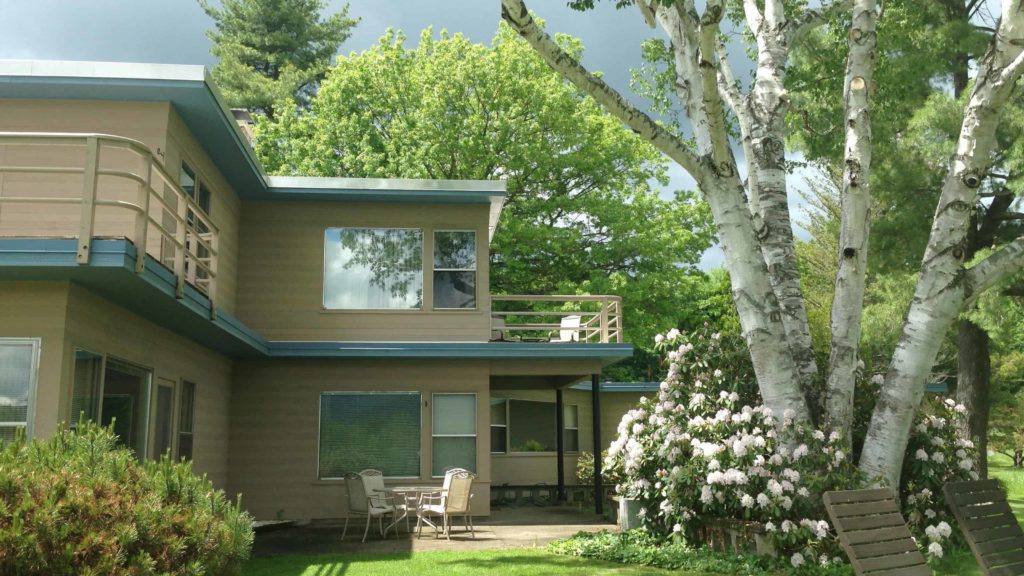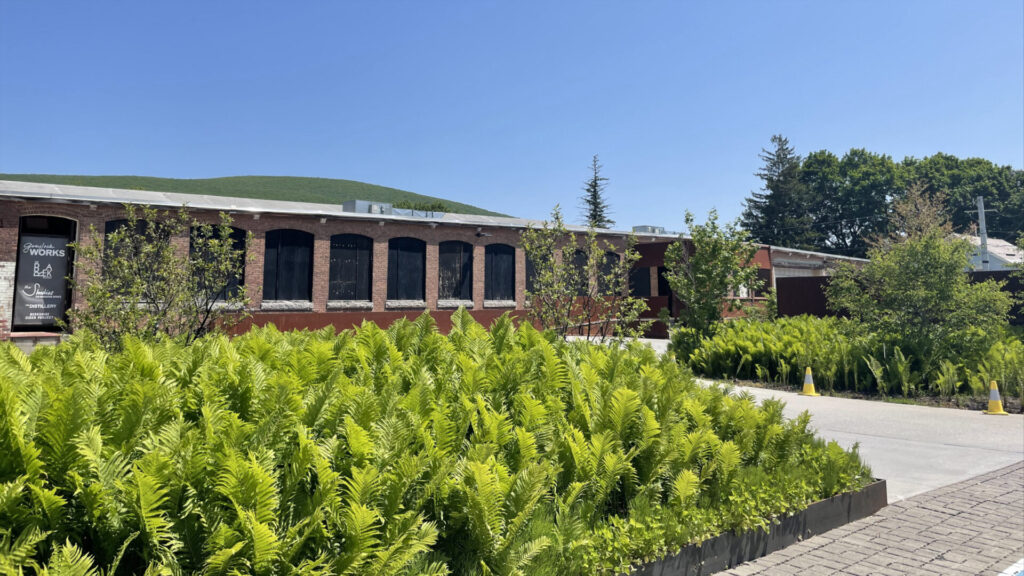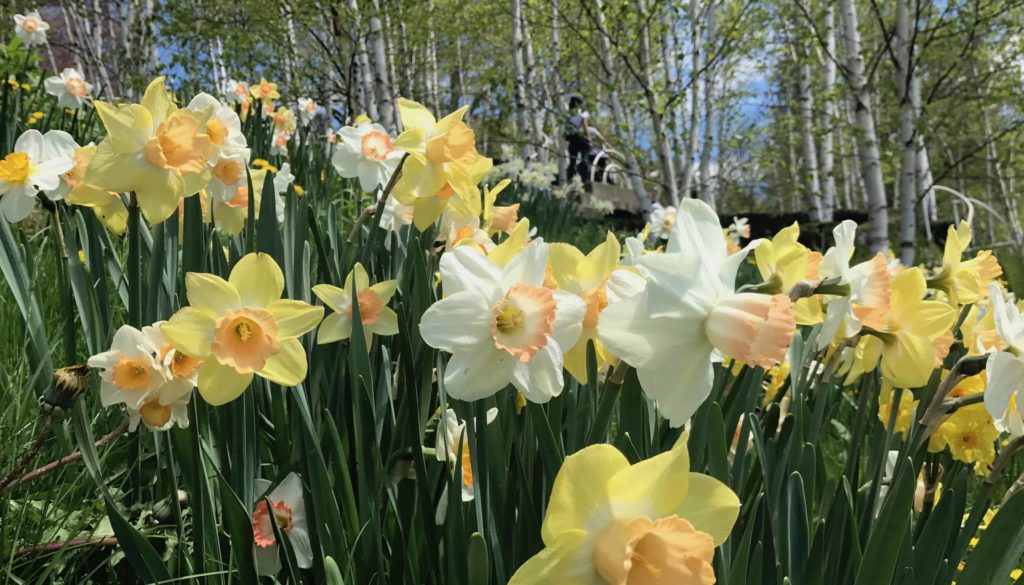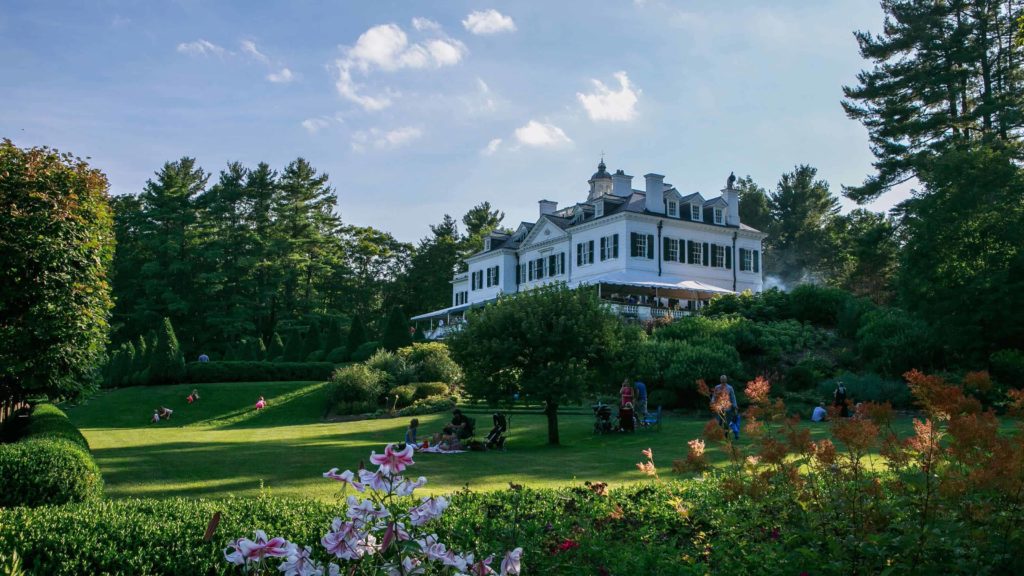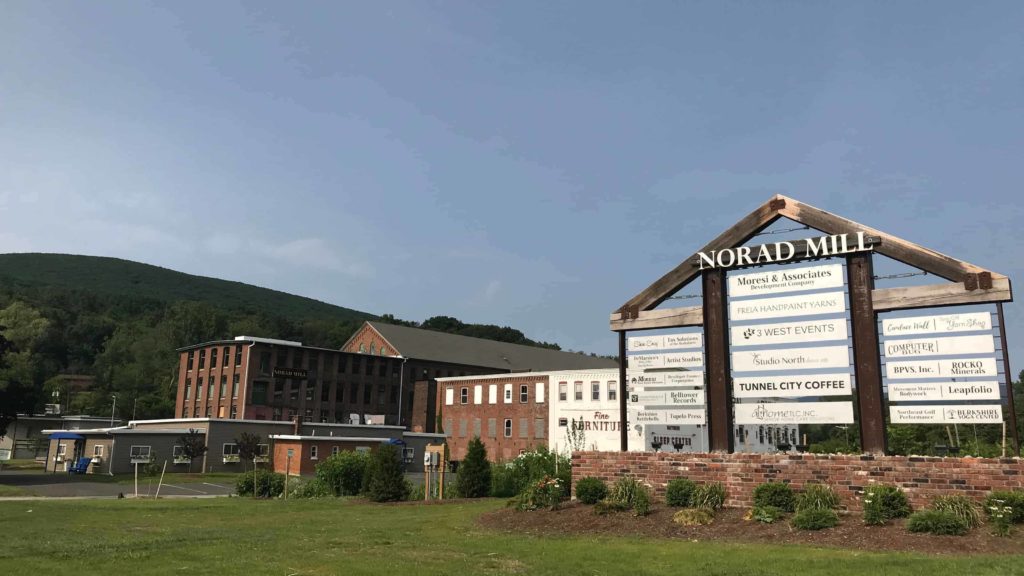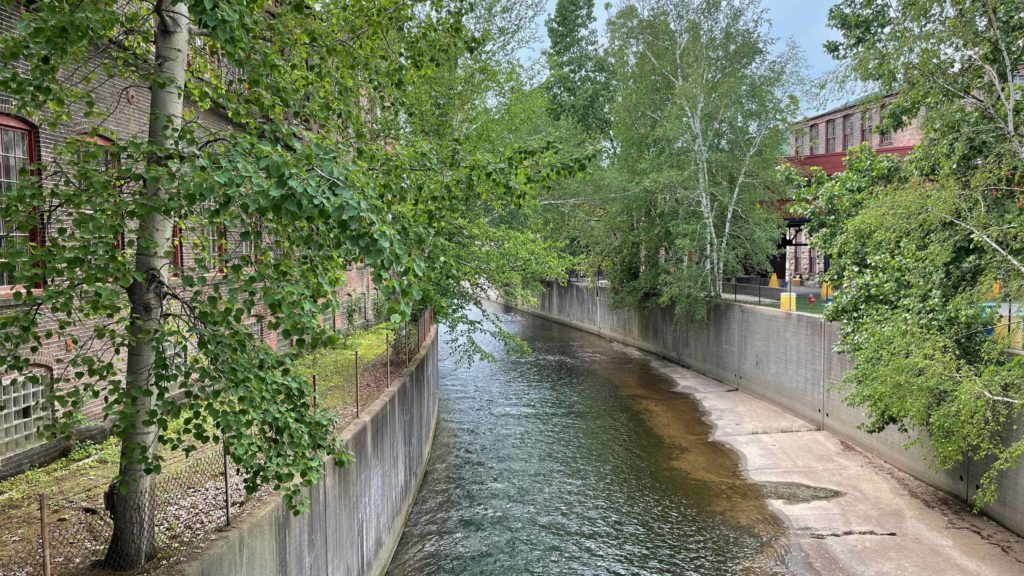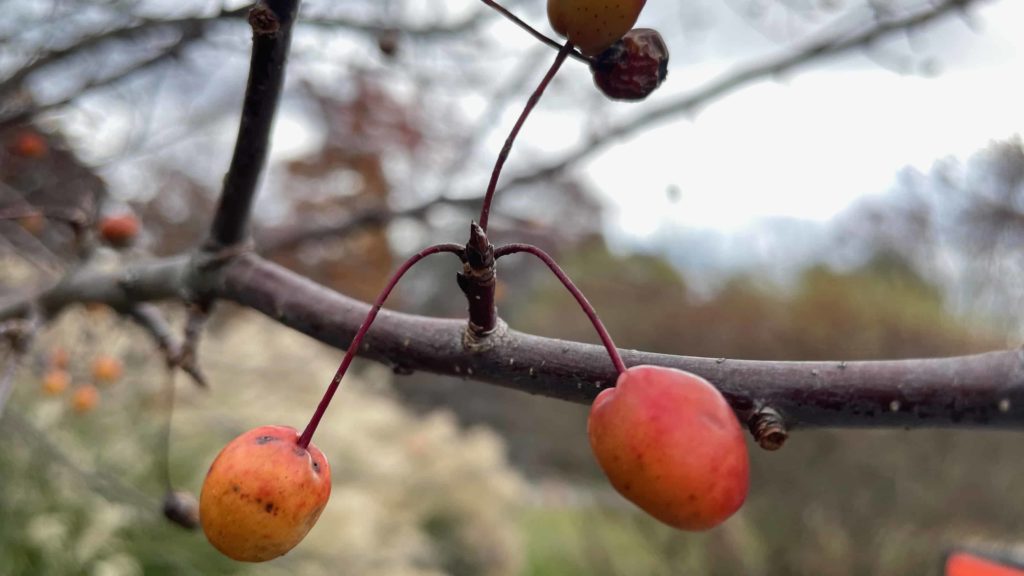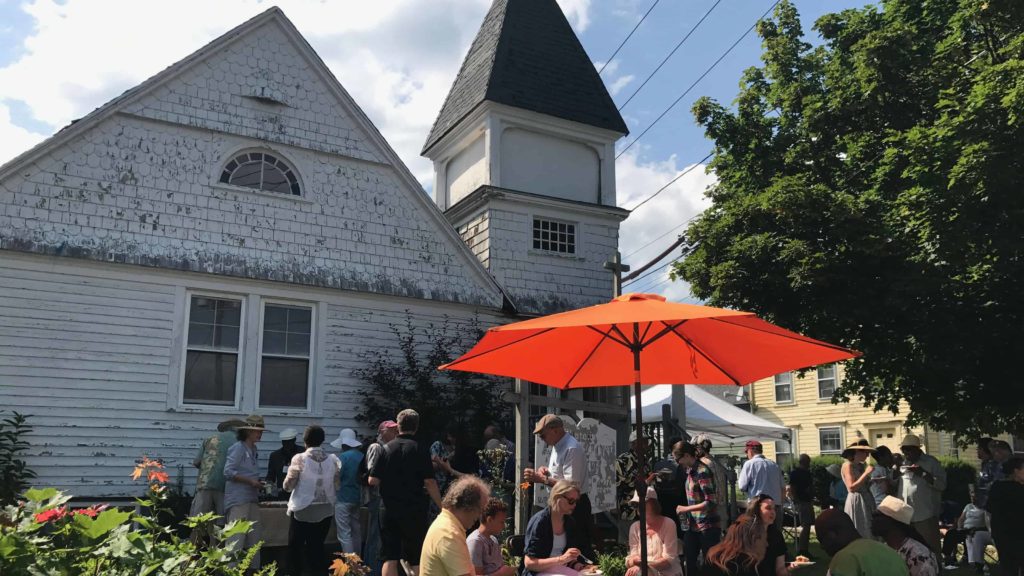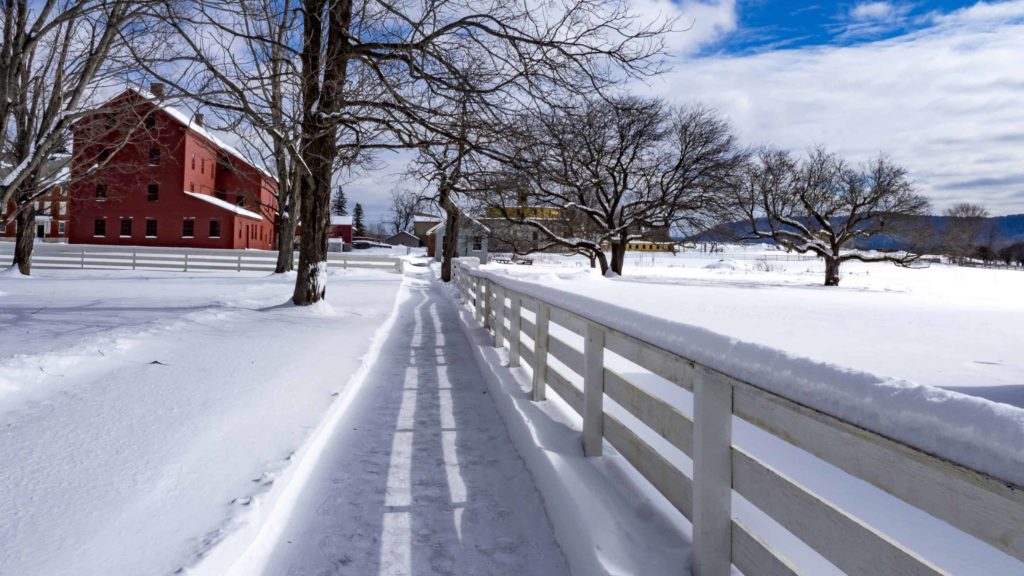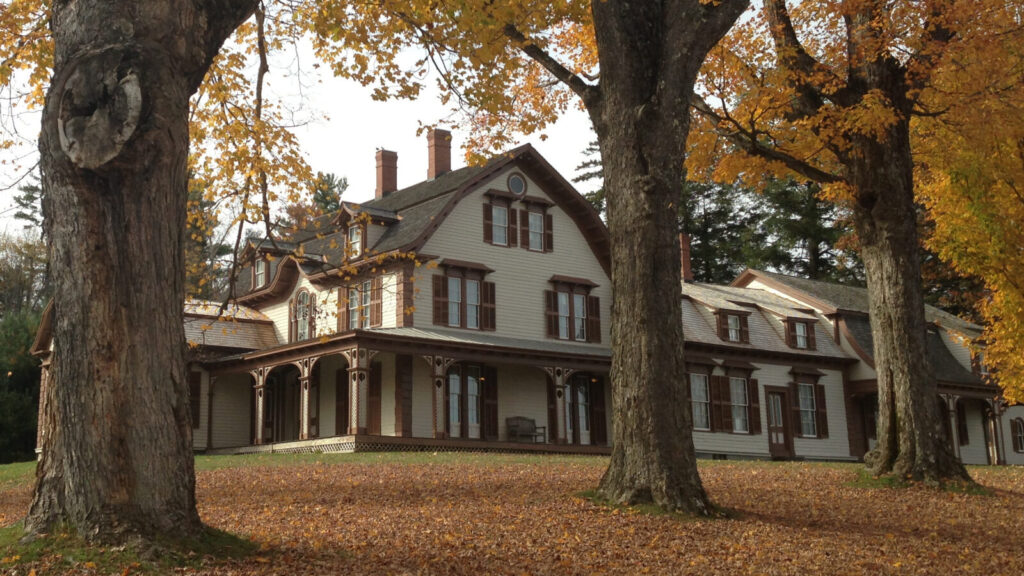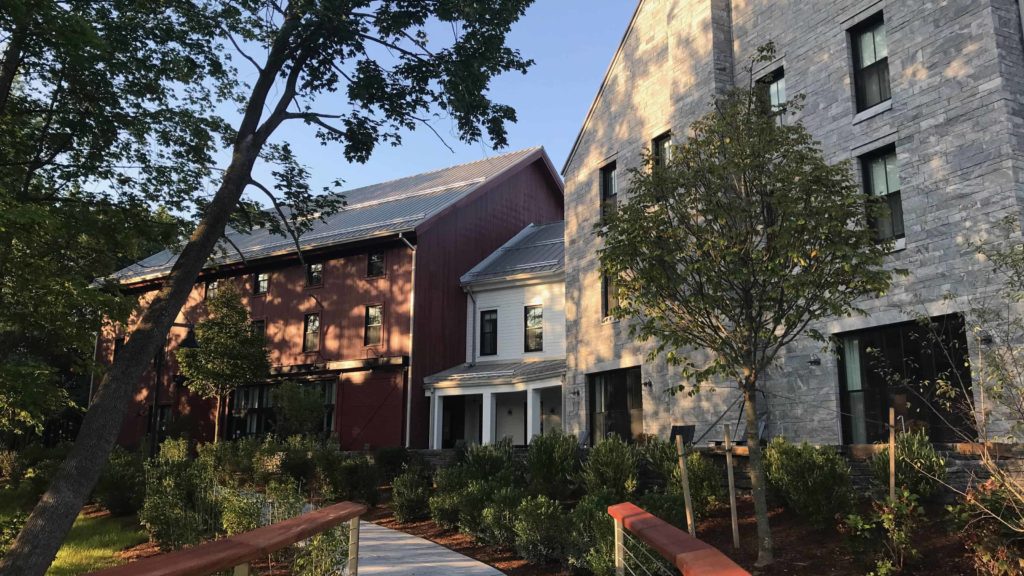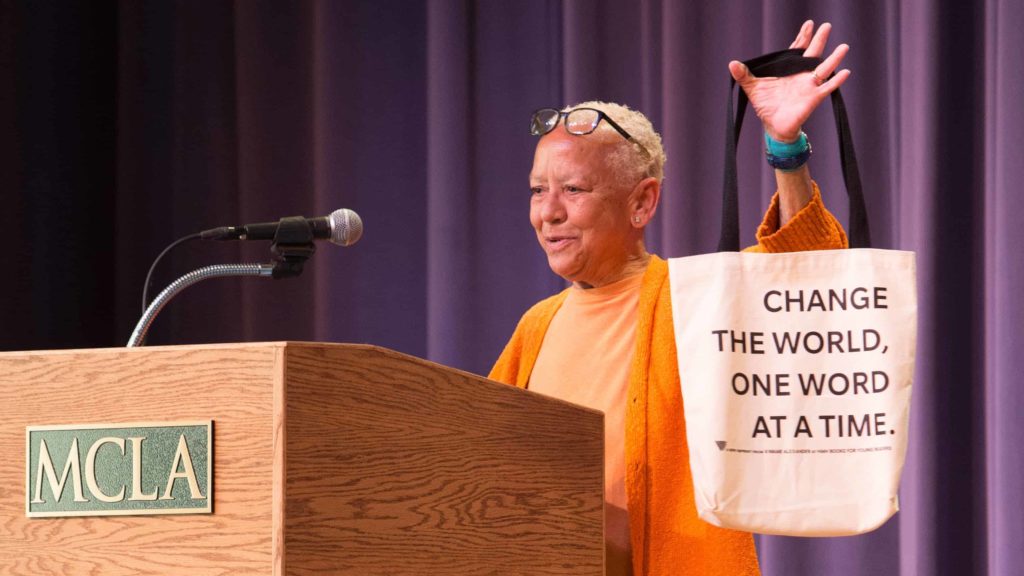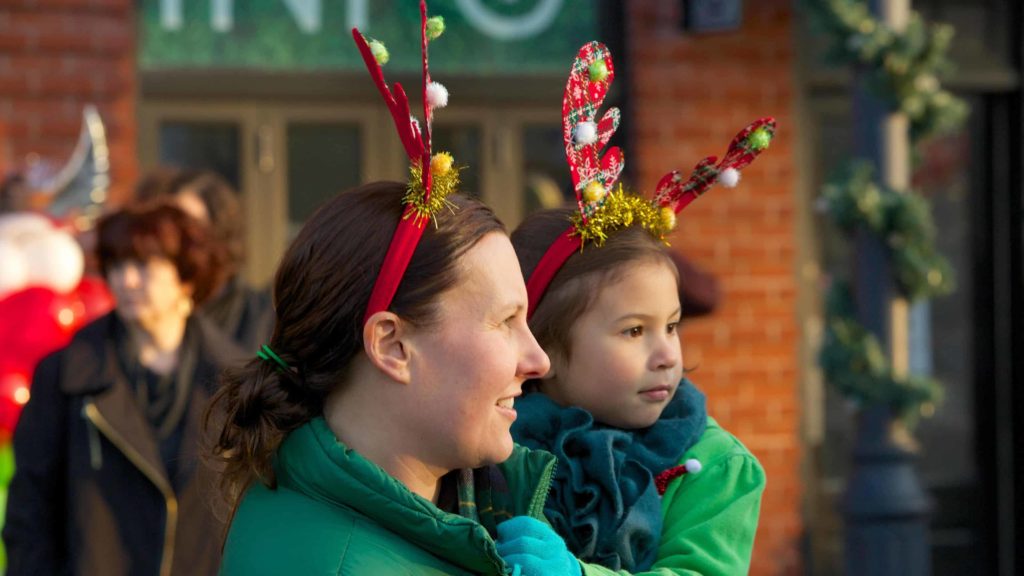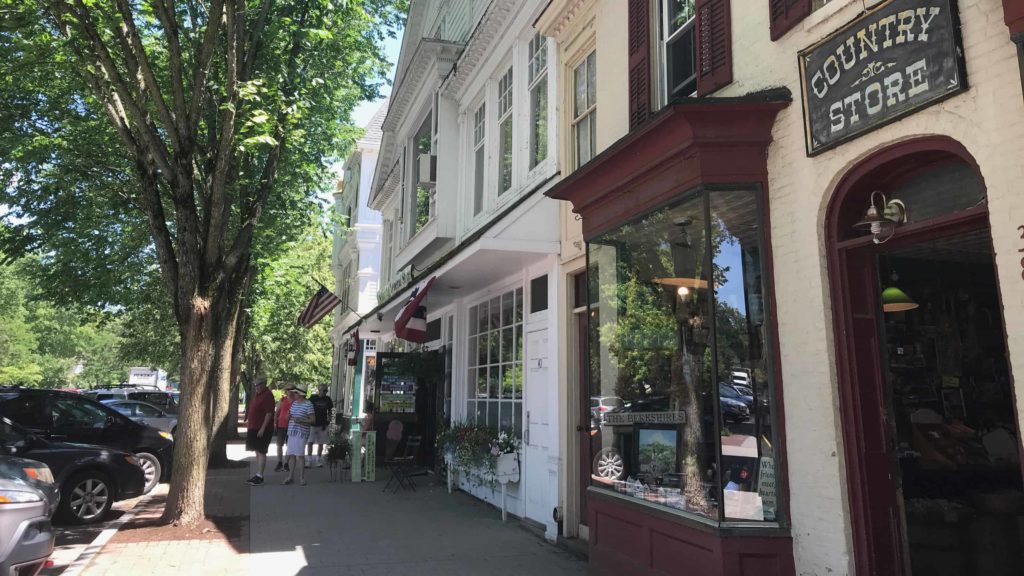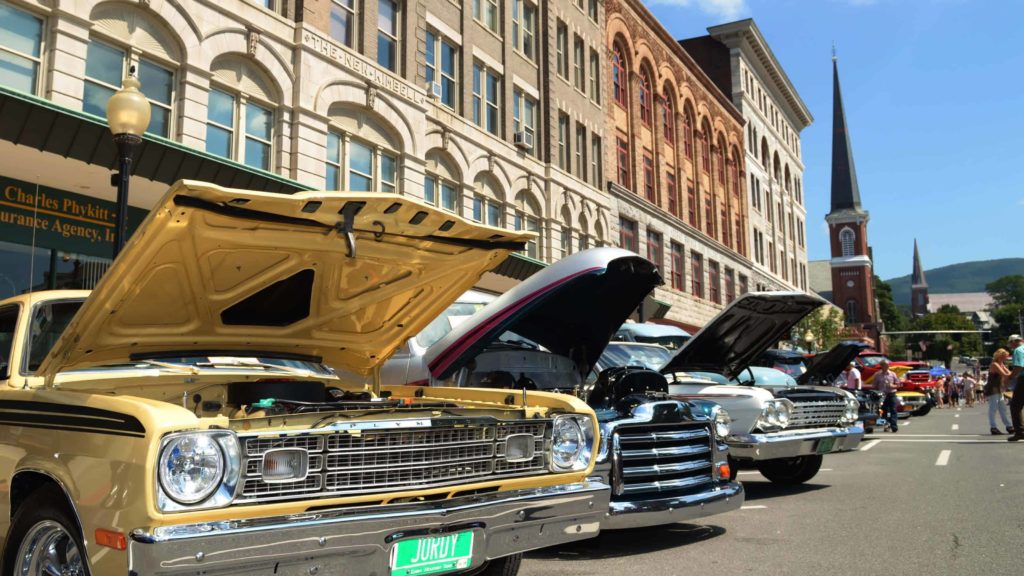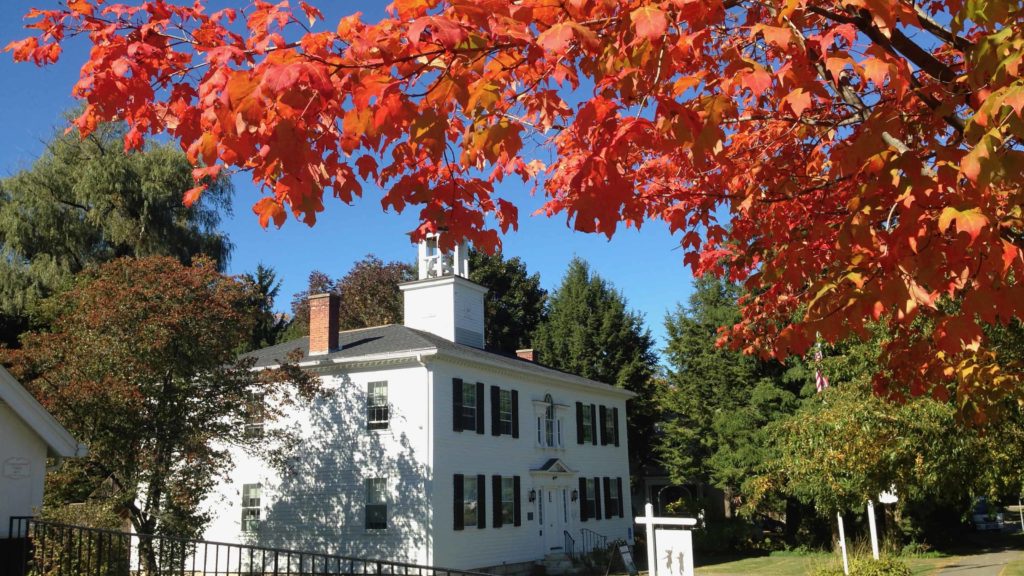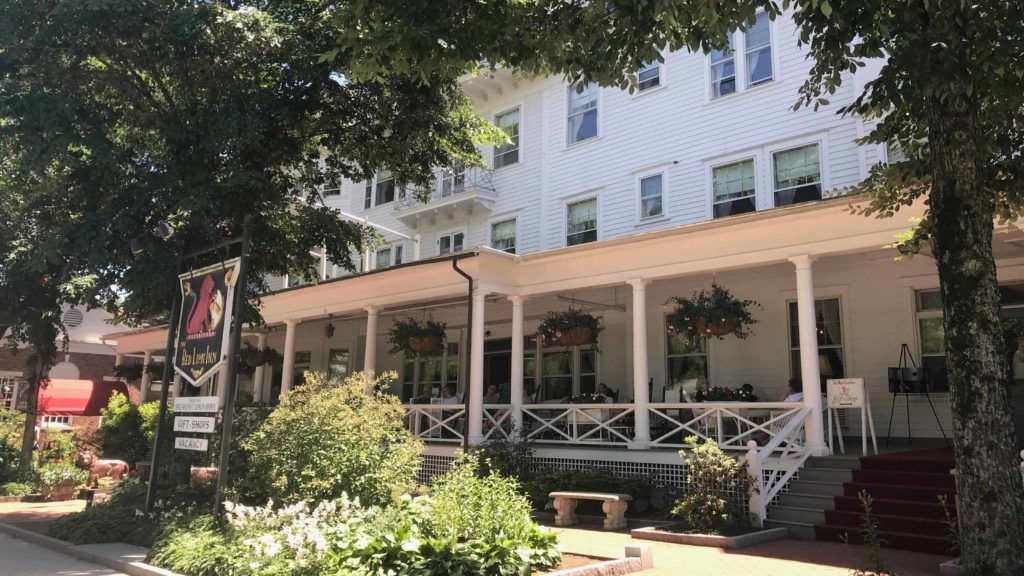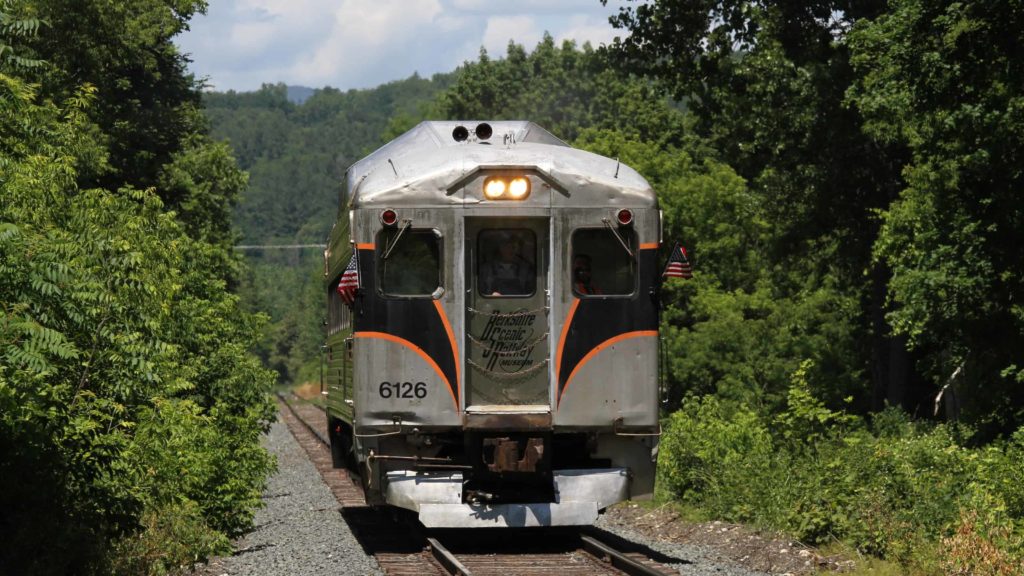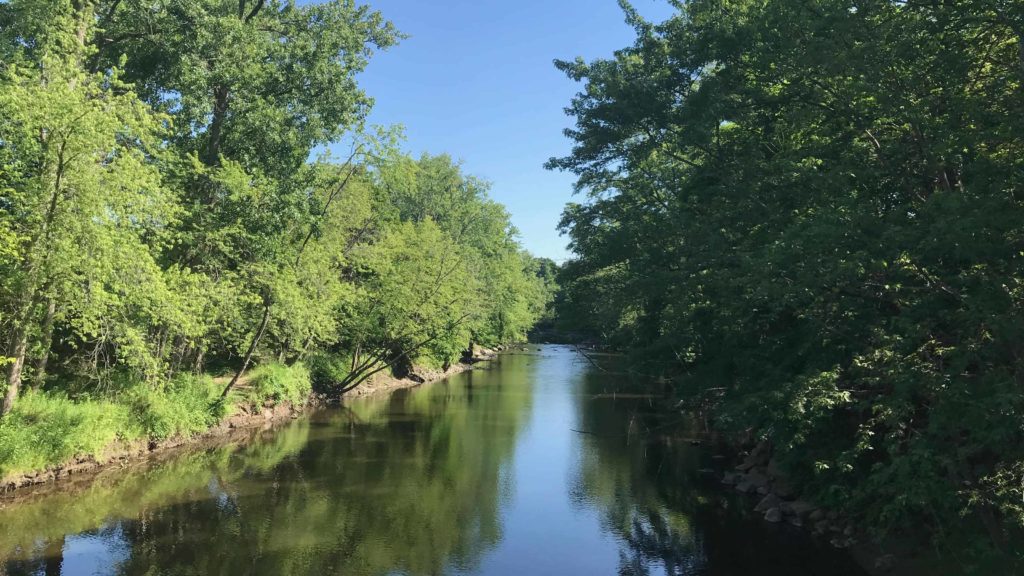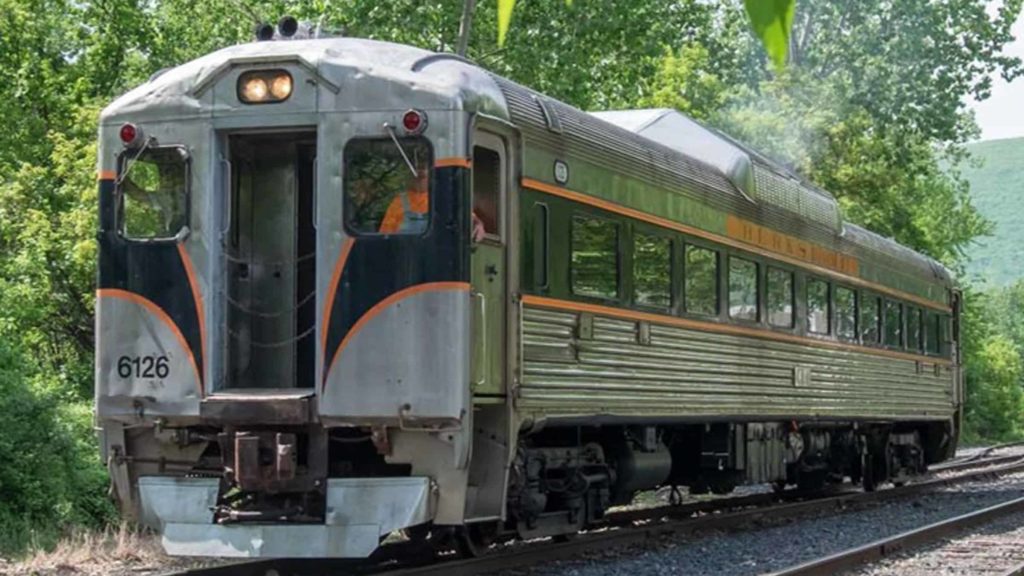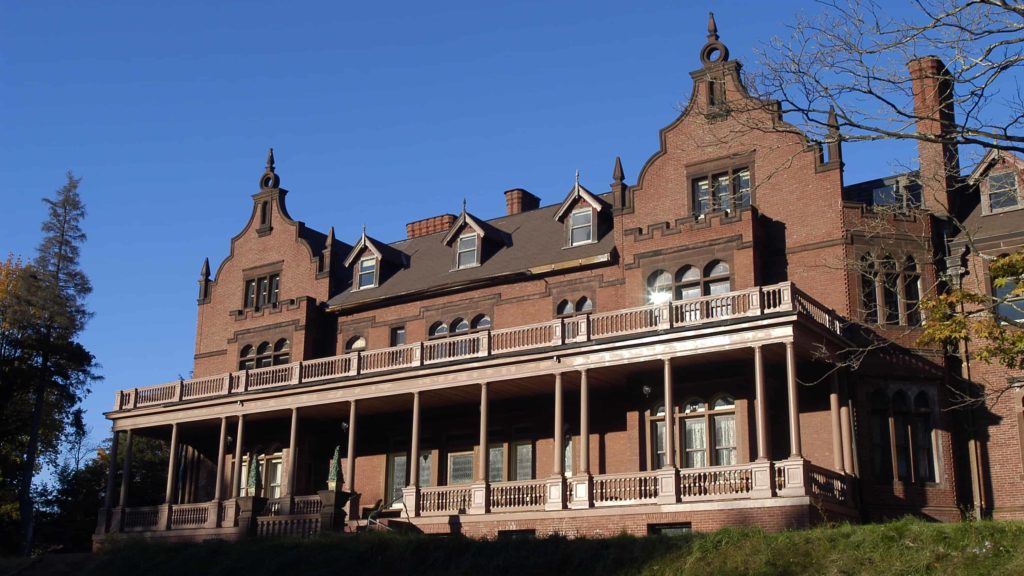Herman Melville and his family were living in the Berkshires, in a farmhouse in Pittsfield, while he wrote ‘Moby-Dick’ in the 1850s. From his desk, he could see the outline of Mount Greylock above the surrounding hills, and it reminded him of a sperm whale’s back in the water, when the whale came up to breathe.
READ MORESome of our history in the Berkshires is alive because we still use it every day, to make cheese or cider or a cup to drink it in. A third-generation family farm boils sap for maple syrup. Clapboard houses, slate roofs and summer mansions stand as solidly as the local marble Italian families came here to quarry a century ago.
Some we preserve. We grow herbs and walk trails. We rebuild and tell stories. And some of our history we are reviving in new ways. In a silo at Hancock Shaker Village, new music invokes Shaker hymns. The composer immersed himself in their melody and acoustics and drew on contemporary artists and technology to re-create them.
He is also the director of the Grammy-winning ensemble Roomful of Teeth, which took its first steps (and half-steps) at Mass MoCA, where the boiler room holds the voices of people who worked in the mills.
Historic places in the Berkshires
Berkshire Museum
The Berkshire Museum covers a lot of ground — local history and natural history, science and art. It has stood at the center of the county for more than 100 years.
READ MOREChesterwood
In a studio with tall windows letting in the north light, Daniel Chester French created the figure of Abraham Lincoln for the Lincoln Memorial in Washington D.C. Today contemporary sculpture lines the paths and gardens in the summer and fall.
READ MOREField Farm
Nature and Modern art mingle at Field Farm in Williamstown. The Trustees of Reservations maintains the outoor sculpture garden and trails— open to the public from sunrise to sunset all year — and will open the Folly for art tours occasionally.
READ MOREGreylockWorks
Karla Rothstein and Salvatore Perry have renovated a 240,000 cotton mill on Route 2 near the North Adams / Williamstown line into GreylockWorks, a center for local food and events.
READ MOREThe Mount
Edith Wharton, the first woman to win the Pulitzer Prize, wrote many of her best-known novels in this house, in the 10 years she lived in Lenox — from The House of Mirth to Ethan Frome. Her house is now a museum, a center of writing, music and performance, landscape and gardens, dedicated to keeping her spirit alive.
READ MORENorad Mill
Moresi & Associates has drawn more than 40 local businesses to the renovated Norad Mill — artists and artisans, coffee and local wines, vintage records, yarn shops and even rocks and minerals.
READ MOREBlackinton Center
Along the Hoosic River and the railroad tracks, you’ll come to a foot bridge where the Appalachian Trail crosses the river, and nearby an almost art deco brick building still bears the name of the Blackinton Mill.
READ MOREForge Project
A new collaboration celebrates Native and Indigenous communities across the Americas and builds relationships through the land and local food, arts and conversations, activism and more.
READ MOREDuBois Freedom Center
The W.E.B. Du Bois Center for Freedom and Democracy is taking shape within the former Clinton A.M.E. Zion Church in Great Barrington.
READ MOREHancock Shaker Village
From 1783 to 1960, a Shaker community lived and farmed here. Today the village is a living history museum known for its Round Stone Barn, with farm animals and CSA gardens, art and craft, and dinners and music.
READ MOREBryant homestead
Along the Westfield River Valley, William Cullen Bryant, editor and publisher of the New York Evening Post for many years, wrote meditative verse and influenced 19th-century land conservation.
READ MOREWilliams Inn
Walk through the park and cross the bridge over Hemlock Brook, and you’ll see a kind of courtyard in old New England forms. The buildings run together in red barn and clapboard and stone. And they are all new. The Williams Inn opened in its Spring Street incarnation in summer […]
READ MOREWilliamstown
Williamstown has grown with Williams College, from a quiet farming community to a center of the arts. They were founded together, and their relationship is often complex. The college gives the town an energy.
READ MOREStockbridge
Stockbridge protects its old New England Main Street, with the Red Lion Inn on the corner. On the right weekend, you might see a parade of coaches and four driving up Route 7 — or classic cars lining the downtown.
READ MORENorth Adams
Massachusetts’ smallest city at the foot of the state’s highest mountain is becoming an known around the world. It’s an old manufacturing town at the western edge of the Mohawk Trail. It’s a community reviving and adapting after many of the mills closed down. And today it’s the home of one of the largest contemporary art museums on the planet.
READ MORERed Lion Inn
The Red Lion Inn has stood centrally on Main Street since 1773, when it served as a stage coach between Boston and Albany. The old clapboard building has a history going back to the Revolution, and today it brings locals and visitors to its restaurants and shop of goods from local artists and artisans.
READ MOREDewey Hall
At the center of Sheffield’s town green, along Route 7, an old fieldstone and marble hall has acted as a community center for more than a hundred years. A community group hosts art shows and talks here, concerts, swing and contradances and the Dewey Hall Folk Series.
READ MOREHoosac Valley Line
On weekends, Berkshire Scenic Railway runs hour-long, round-trip historic train rides between Adams and North Adams, and local volunteers tell the story of trains in the mountains.
READ MOREHousatonic Heritage
The Upper Housatonic Valley National Heritage Area tells the stories of the people and the land here, past and present and future.
READ MOREBerkshire Scenic Railway
The Berkshire Scenic Railway has restored the old Lenox Station to the way it looked in 1903. Today, it is on the National Register of Historic Places, and travelers can take a guided tour of the station and its historic railroad equipment and ride a Jitney on the museum grounds, even in the cab of the locomotive.
READ MOREVentfort Hall
Venfort Hall was built as one of the Berkshire ‘Cottages,’ some 75 mansions where the scions of new York and Boston would come in summer and fall to escape the city. Today it holds the Museum of the Gilded Age — America in the 1870s to 1900.
READ MORE
